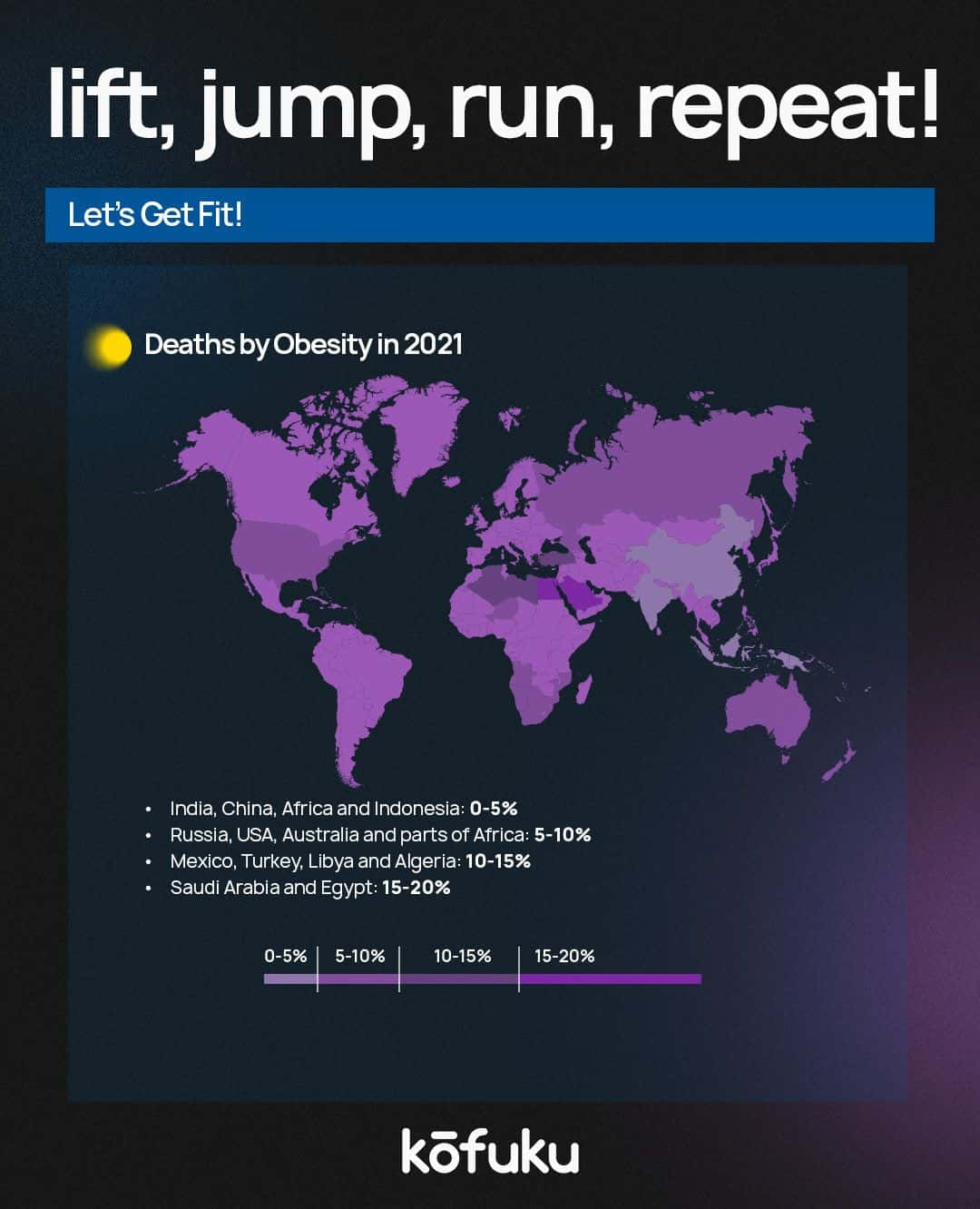World Obesity Day 2025 - Where Do We Stand As A Nation?

Introduction
World Obesity Day falls on March 4 every year. And no, we’re not celebrating obesity, but rather, the day is spent raising awareness about this global problem. People advocate, inculcate, and bring about policies around the issues of obesity.
Obesity Is a Global Issue
You might think that only a small percentage of Indians are obese, and this is mainly a Western thing. However, it’s an issue that’s plaguing every country around the world. Five countries – the United States, China, Brazil, India, and Russia – account for around a third of all cases of obesity in adults globally. Quite an eclectic group! By 2025, global obesity rates are set to reach 18% in men and cross 21% in women.
Obesity in India
In India, almost 140 million people suffer from obesity. That’s about 10% of the population! Now, there are a lot of factors that affect this problem, such as age, gender, diet, job, activity levels, and socio-economic status.
The same study said that obesity could, however, range between 13% to 31% if you consider the entire population instead of a sample space. In comparison, central obesity (belly fat) rates vary between 16.9% and 36.3%.
These numbers are also increasing year by year as more people move to the city in their comfy office jobs, not really working out or doing any form of real exercise.
Children especially are set to bear the brunt of this rising issue, with over 14.4 million Indian kids being obese. The leading causes of children being obese are poor diet, living a sedentary lifestyle, and general inactivity.
Think of it: a plate of khichdi with ghee has about 400-500 calories, and pairing that up with just sitting and watching your favourite YouTuber all day makes it a fun way to gain weight.
Is Obesity So Bad?
Well, obesity is not just being fat and finding it hard to walk around, which is bad enough. However, it is a significant risk factor for non-communicable diseases (NCDs) such as cardiovascular diseases, type 2 diabetes, and hypertension.
The World Health Organization's NCD progress monitor of 2015 estimated that 61% of total deaths in India were because of NCDs, with about 23% of the population at risk of premature death from these diseases.

Theme and Objectives of World Obesity Day 2025
While the central theme for World Obesity Day 2025 hasn’t been announced yet, the primary goals are always the same:
- Promote Awareness:
Educate the public about the health risks associated with obesity and the importance of maintaining a healthy weight.
- Encourage Advocacy:
Mobilise stakeholders, including governments, healthcare providers, and communities, to prioritise obesity prevention.
- Improve Policies:
Advocate for policies that allow access to healthy foods, create opportunities for physical activity, and support people in achieving and maintaining a healthy weight.
Participating in World Obesity Day 2025
Here’s how you can participate in World Obesity Day this year!
- Attend Events:
Join local or virtual events focused on obesity awareness and prevention. There will be many workshops, seminars, and fitness activities.
- Engage in Awareness Campaigns:
Use social media to share information about obesity, its risks, and how to prevent it.
- Support Advocacy Efforts:
Collaborate with organisations that combat obesity and host an event in your office or college. This event can be anything: volunteering, fundraising, or participating in policy advocacy initiatives!
Health Tips for Combating Obesity
Making obesity a thing of the past requires an approach that includes dietary changes, physical activity, and lifestyle changes:
- Adopt a Balanced Diet:
Focus on eating a mix of fruits, vegetables, whole grains, and lean proteins. Limit the intake of processed foods, sugary beverages, and high-fat items.
- Take part in Regular Physical Activity:
Aim for at least 150 minutes of moderate-intensity aerobic activity or 75 minutes of vigorous-intensity activity each week, along with muscle-strengthening exercises two or more days per week.
- Prioritise Sleep:
Ensure you get seven to nine hours of quality sleep per night, as sleep deprivation can affect hunger hormones and contribute to weight gain.
- Manage Stress:
Add some stress-reduction techniques such as meditation, deep breathing exercises, or nature walks to prevent stress-related overeating.

Community Involvement and Educational Programs
Community engagement plays a crucial role in addressing obesity:
- Implement Educational Programs:
Schools and public centres can offer programs that teach the importance of nutrition and physical activity. Schools can also recognise and reward students who bring healthy food.
- Create Support Groups:
There are already local groups and channels where people can share their experiences, challenges, diets, and successes related to weight management.
- Develop Public Parks:
Lobby for creating public parks so people can walk, run, or exercise for free!
Global Goals and the Role of the World Health Organization
The World Health Organization (WHO) has set targets to stop the rise in obesity by 2025. However, with current trends, almost no country is even close to slowing down obesity rates, especially in developing countries like India, Brazil, and Egypt.
This clearly shows us that, as humans, we are nowhere close to solving the problem of obesity on a large scale, and more governments and organisations should come together to invest and create a pathway for a healthier population as generations pass.
Addressing Childhood Obesity
Childhood obesity is a growing concern, with many stating that there will be a 60% increase in the number of children affected by 2030 if nothing changes. And hence, early intervention is so necessary:
- Promote Healthy Eating Habits:
Encourage children to eat a balanced diet rich in nutrients and not the same old faasos roll daily.
- Increase Physical Activity:
Make sure children engage in regular physical activity through after-school classes, training, or just playing with their apartment friends.
- Limit Screen Time:
Reduce the amount of time children spend on sedentary activities such as watching television or playing video games.
Conclusion
As World Obesity Day 2025 approaches, it's a good moment for all of us to reflect on the current state of obesity in our country and work towards practical steps to reduce it. Through awareness, education, community involvement, and policy advocacy, we can work together to combat obesity and promote a healthier future.


Does Fruit Juice Contribute to Obesity?

Comprehensive Guide to Superfood Nutrition for Better Health

Impact of Sleep on Physical Health: Unlock Your Potential


